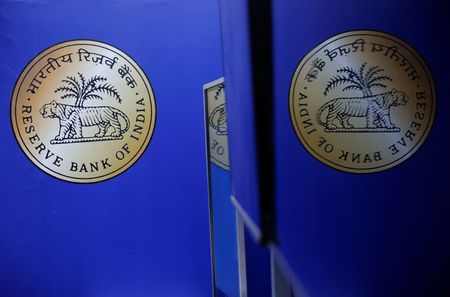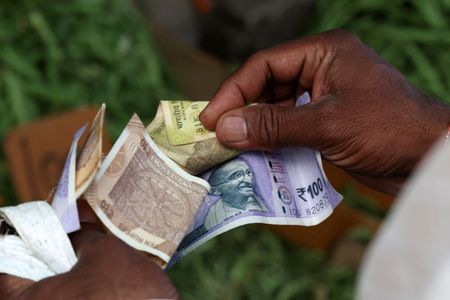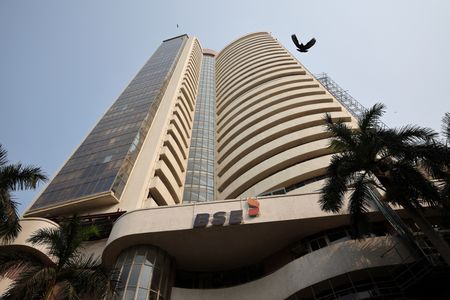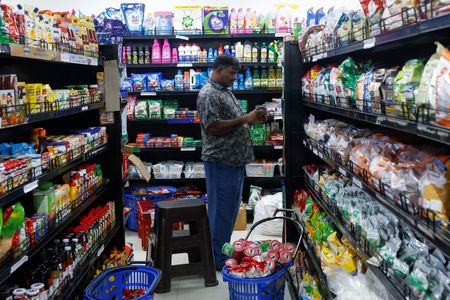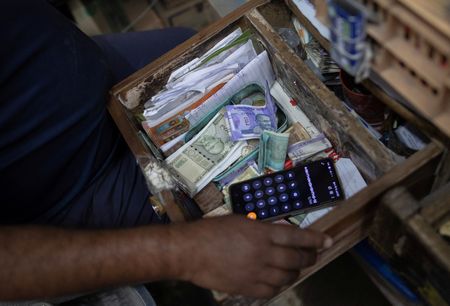By Swati Bhat
MUMBAI (Reuters) – Strong economic growth and moderating inflation means India’s central bank will have room to keep interest rates on hold at its review this week and likely until July, economists say.
The Reserve Bank of India (RBI) is widely expected to keep rates unchanged on Friday, for the seventh consecutive meeting.
All 56 economists in the March 15-22 Reuters poll expected the RBI to hold the repo rate at 6.50% while most expect no change at least until July.
The RBI has ample room to remain on hold in the near term, Barclays said in a note.
The central bank last changed rates in February 2023, when the policy rate was hiked to 6.5%.
“We think the RBI will have to consider the balance of risks between over tightening (given the ‘not-too-hot-nor-too-cold’ state of the economy) and maintaining monetary policy conditions for achieving reasonably good real GDP growth of at least 7.0%,” Barclays economists wrote, referring to the proverbial “Goldilocks” ideal state of stable economic growth.
As India heads into a general election this month, the economy is growing faster than expected amid signs prices are trending lower though food inflation remains a risk.
Prime Minister Narendra Modi said at an event on Monday that the RBI must give top priority to growth but at the same time focus on trust and stability.
Modi’s Hindu nationalist Bharatiya Janata Party is expected to secure a comfortable win for a third straight term at the polls starting on April 19.
India’s economy grew a stellar 8.4% in the fourth quarter of 2023, the fastest among major economies while retail prices in February rose at a faster-than-expected pace of 5.09% due to elevated food prices, staying above the RBI’s 4% target.
In February, one of six monetary policy committee members voted for a cut in policy rates arguing that real rates in India are too high since inflation is seen easing to an average of 4.5% in 2024-25.
“India’s growth is robust when compared to the rest of the world, but not when compared to our potential or to our aspirations,” monetary policy committee’s external member Jayanth Varma told Reuters.
But central bank governor Shaktikanta Das has repeatedly said that it is premature to ease policy before inflation returns to the 4% target.
Headline inflation in India has remained above the central bank’s target, core inflation has fallen below 4%, which some say may allow the central bank to signal policy easing ahead.
The current monetary policy stance is ‘withdrawal of accommodation’, signalling that monetary policy will likely remain tight.
“We do not expect any change in the policy rate, but a probable explicit or implicit change in stance cannot be ruled out,” said Parijat Agrawal, head of fixed income at Union Mutual Fund.
The RBI’s monetary policy setting is independent but that has not prevented governments in the past from exerting pressure on the central bank for easier lending policies to support growth.
“At the margin, the RBI will prefer to stay on the sidelines to prevent any flare up of concerns over its independence,” said Thamashi De Silva, assistant India economist at Capital Economics.
(Reporting by Swati Bhat; Editing by Jacqueline Wong)


